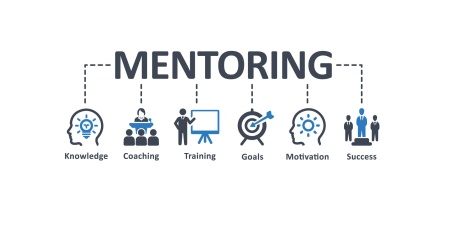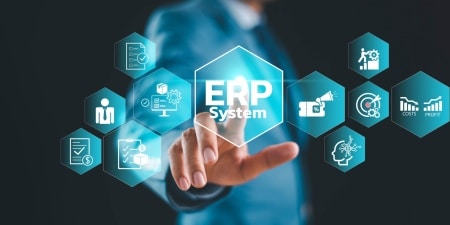As a GenZ authority and policy advocate, I believe it is essential to advance a cross-generational understanding of the driving forces behind the post-millennial economy in order for industry to establish best practices and move forward in a meaningful and impactful way. GenZ, the “iGen” demographic cohort born between 1997 and 2012, is the first to grow up fully immersed in technology. As such, “Zoomers” are known for a high level of digital savviness that has underpinned their unprecedented entrepreneurial spirit—and their abrogation from societal norms.
While there are a myriad of behaviors and beliefs that heavily influenced GenZ’s economic decisions, there are a select group of specifics that reign supreme—especially with respect to these four economic sectors:
Artificial Intelligence (AI) Industry: GenZ is highly interested in the AI industry and its potential to revolutionize various sectors, such as healthcare, education and transportation. According to a survey by Deloitte, 51% of GenZ respondents said they are interested in a career in technology, this includes degrees in computer and information sciences rising 38% from 2015 – 2019. Furthermore, a report by the World Economic Forum predicts that AI will create 58 million new jobs by 2023. GenZ is well positioned to take advantage of these opportunities and shape the future of the AI industry.
- Web3 Industry: GenZ has a strong interest in the Web3 industry, which includes decentralized technologies such as blockchain, cryptocurrency and smart contracts. They see the potential of Web3 to create a more decentralized and transparent internet, where data is controlled by the users instead of a handful of big tech giants. According to a survey by Chainalysis, 64% of GenZ respondents said they own or have owned cryptocurrency, compared to only 22% of millennials. Furthermore, a report by Gartner predicts that by 2025, the business value added by blockchain will reach $3.1 trillion. GenZ is poised to play a vital role in shaping the future of the Web3 industry.
- Natural Resource Energy Economy: GenZ cares deeply about the environment and the impact of human activities on climate change. They understand the need to transition to a more sustainable energy economy that is based on renewable resources. According to a survey by the Pew Research Center, 69% of GenZ respondents said they are worried about climate change, compared to 59% of millennials. Furthermore, a report by the International Energy Agency predicts that renewable energy sources could account for 90% of the world’s power generation by 2050. GenZ is well positioned to lead the transition to a more sustainable energy economy.
- Social Media Economy: GenZ is highly active on social media and is well-versed in the workings of the social media economy. They understand the power of influencer marketing and the role of these platforms in shaping public opinion. According to research, GenZ is 59% more likely to connect with brands online than other generations. Furthermore, a report by Business Insider predicts that the global influencer marketing industry will be worth $15 billion by 2023. GenZ is poised to shape the future of the social media economy through their participation as influencers and consumers.
Mindsets Matter: Key Factors Driving GenZ Beliefs and Behaviors
As Gen Z belief systems and behaviors are a driving force not only in shaping culture, but economies at the global level, it’s imperative to understand commonalities in order to discern opportunities and challenges that lie ahead. Here are my top 10.
Consumerism and Motivation to Succeed: Many Gen Z prioritize their career and financial goals over immediate gratification in their personal lives. They are more materialistic and motivated to succeed than previous generations, with an overall goal of achieving financial security and an upper middle-class lifestyle that now is seemingly out of reach for many as wages remain stagnant over time. According to a survey by Bank of America, 45% of GenZ respondents said that material goods are a major priority for them, compared to only 34% of millennials.
Slow Living: GenZ values a slower pace of life and is more focused on living in the present moment. According to a study by EY, 67% of GenZ is moderately to extremely worried about their physical and mental health, making health a high priority for this generation. They also distinguish between “quiet quitting,” which many in the generation believe is simply giving only as much into their job as their job compensates them for vs. Slow Living, which involves setting healthy boundaries between work and personal life.
Emphasis on Multiple Income Streams: GenZ is more likely to have multiple streams of income, such as a part-time job, freelancing, or a side hustle. They understand the importance of diversifying their income sources to mitigate financial risk, and also see additional streams of income as a necessity in an economy of stagnant wages. A survey by Lending Tree found that 62% of GenZ respondents have a side hustle as compared to 55% of millennials.
Budgeting and Understanding Credit: GenZ is known for their budgeting skills and understanding of credit. After watching their parents face the consequences of the 2008 financial crisis, they tend to be more financially savvy and responsible than previous generations. According to Finder’s Consumer Confidence Index Gen Z saves an average of $857 a month while Millennials save $294.
Trade School and Specialization: GenZ values practical skills and specialized knowledge. They are more willing to pursue trade schools or specialized degrees that offer a clear career path and high earning potential. They also tend to be more cost-conscious and are willing to weigh the cost-benefit of higher education given the skyrocketing cost of higher education and the known risks of student debt. NPR reports that, while enrollment in community colleges is down, trade schools have seen enrollment numbers increase in recent years.
Technological Proficiency: GenZ is the first generation to grow up fully immersed in technology. They are more comfortable with technology and are more likely to pursue careers in the tech industry. They are also more efficient in their work. A report by Under Cover Recruiter references Gen Z as “skilled when it comes to technology savants, online work and innovation.”
Retirement: GenZ is less concerned with retirement than previous generations. They tend to prioritize their current financial and career goals over planning for their retirement. A survey by anytimeestimate.com found that GenZ makes up the largest group of Americans (44%) not saving for retirement.
Employer Loyalty: GenZ values loyalty from their employers. They understand that loyalty is not inherent and must be earned through mutual respect and appreciation. They also prioritize feeling appreciated and acknowledged in their work over staying with a company long-term. A survey by PromoLeaf found that Gen Z respondents want to spend an average of 3.7 years on a job.
Parental Trust: GenZ is more trusting of their parents than millennials when it comes to financial advice. A survey by YPulse found that 70% of GenZ respondents said they usually or always trust their parents to give them good financial advice, compared to only 60% of millennials. This trust in their parents can be attributed to the fact that GenZ has grown up during a time of economic uncertainty and has seen their parents navigate through financial challenges. They see their parents as a reliable source of financial guidance and advice. This may be a reflection of increased transparency and engagement Gen X parents offered their children in comparison to previous parental generations.
Home Ownership: GenZ does not see home ownership as a priority, or even an attainable goal, as previous generations did. According to a recent article by Levi Leidy while Millennials lag behind Gen X, Baby Boomers, and Silent Generation in homeownership at age 40, the trend is expected to continue with Gen Z and they are aware of it. The high cost of housing and student loan debt are among the reasons that make it difficult for GenZ to afford a home. Additionally, many GenZ have seen their parents struggle with mortgages and foreclosures during the 2008 financial crisis, which has made them more cautious and hesitant about buying a home.
In spite of their widely-reported worries, a McKinsey & Company study denotes optimism among Zoomers. “GenZ thinks the economic future is brighter than most other age groups do,” the report cites. “Despite reporting higher levels of job insecurity and financial instability and higher rates of emotional distress and obstacles to working effectively, GenZ’s view of economic opportunity is more optimistic than that of GenX and baby boomers.”
Reputed for being “highly collaborative, self-reliant and pragmatic,” GenZ just might be the lot to live out this ubiquitous American dream if industry collectively adapts to even just these 10 specific proficiencies, inclinations and expectations.









